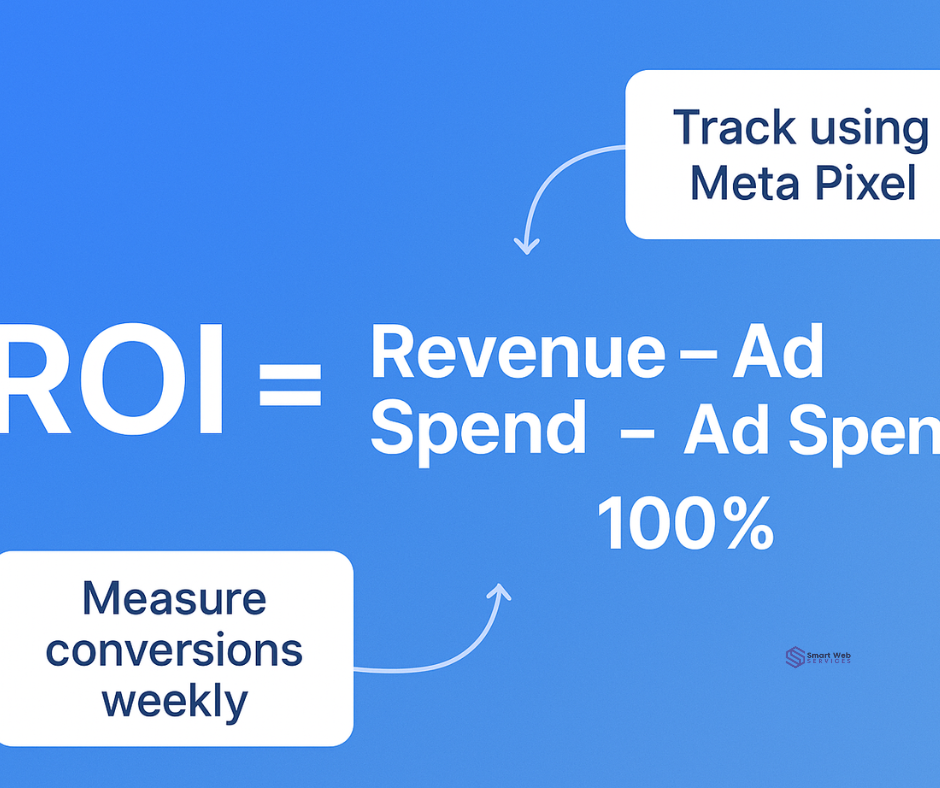Social Media Advertising in Australia: Tips to Maximize ROI
In Australia’s vibrant business landscape, social media advertising has become essential for brands aiming to scale, reach local customers, and compete in saturated markets. However, it’s not enough to simply run ads; maximizing return on ad spend requires strategy, creativity, and constant refinement. Whether you’re a small business in Melbourne or a service brand in Perth, these tips will help you get the best ROI from your social media advertising.

1. Define Measurable Objectives from the Outset
Before investing budget in social ads, set clear, measurable goals. Are you looking to increase brand awareness, drive website traffic, generate leads, grow sales, or improve customer retention? Each objective demands different metrics:
- Brand awareness: Reach, Impressions
- Traffic: Cost per click (CPC), click-through rate (CTR)
- Leads: Cost per lead (CPL), lead quality
- Sales / eCommerce: Return on Ad Spend (ROAS), Average Order Value (AOV)
Setting unrealistic expectations (e.g., expecting huge sales from awareness ads immediately) leads to disappointment. When your targets are tied to numbers—such as “Acquire 50 qualified leads per week at <$30 each”—you’re far better placed to measure performance and adjust.
2. Understand Local Audiences & Segmentation
Australia is geographically vast and culturally diverse. Your customer in inner-city Sydney may respond differently to your messaging than someone in rural Queensland.
- Regional segmentation: Use targeting by state or postcode. Tailor messaging (e.g., “Free delivery to NSW & VIC” or “Same-day pickup Brisbane”)
- Demographics & psychographics: Age, gender, income level, life stage (students, parents, retirees), and interests
- Behavioural data: Past purchasers, website visitors, engagers, cart abandoners
Using first-party data (your website, email lists, past customers) is critical. These audiences are often cost-efficient and convert much better than cold traffic. Build lookalike audiences from them to extend reach without compromising quality.
3. Choose Platforms Based on Goal & Audience
Not all platforms are created equal. Each offers unique ad types and reaches different demographics:
| Platform | Best For | Strengths in Australia |
|---|---|---|
| Facebook / Instagram (Meta) | Brand awareness, eCommerce sales, retargeting | Large user base; powerful targeting; dynamic product ads & stories useful |
| TikTok | Younger audiences; discovery & viral potential | Growing fast; video-first; high engagement |
| B2B, professional services, high-value leads | Better for lead gen forms, thought leadership, audience of decision-makers | |
| YouTube | Video branding, tutorials, product demos | Use skippable & non-skippable ads; great reach with younger demographics |
| Pinterest / Snapchat (niche) | Visual products (fashion, home decor); creative discovery | Less competing ad volume can mean lower costs |
Match the platform to your goals: if you want fast sales, Meta dynamic product ads or TikTok Shop ads might deliver best; for building recognition over time, YouTube or LinkedIn content and ads might be more suitable.
4. Localise Your Creative & Messaging
To win in Australia, your creative needs to feel local:
- Seasonal cues & events: Use campaigns around Australia-specific events like EOFY (End of Financial Year), Boxing Day, Australia Day, back-to-school, summer holidays. Tailor promos accordingly.
- Language & culture: Use Australian English (colour, organise, centre etc.), local slang or references when appropriate but keeping professionalism.
- Images & scenarios that resonate: Show people in familiar settings, local weather, recognizable environments (e.g., BBQ, beach, bush).
- Offering clarity on shipping, returns etc.: Australia’s geography means customers care about delivery time and cost. If you offer free shipping across states, or local pickup, promote that clearly.

5. Structure Your Budget & Campaigns Wisely
Allocating budget intelligently across stages of the funnel is key:
- Top-funnel / Prospecting: allocate a decent percentage to reach new users. Use broader targeting, lookalikes, interest-based.
- Mid-funnel: retarget users who showed interest (website visitors, video watchers, engagement). Use content-driven ads, convincing value propositions.
- Bottom-funnel: those who almost converted—cart abandoners, past customers. Use dynamic product ads, special offers or incentives.
Start with modest budgets to test creatives, audiences, copy. Once you find winners, scale. Be ready to shift budget away from underperforming ad sets.
6. Track Properly & Use Attribution
Without accurate tracking, your ROI numbers may be misleading:
- Install tracking pixels / SDKs (e.g., Meta Pixel, LinkedIn Insight Tag) and use the Conversion API where available to reduce data loss.
- Set UTM parameters on links so traffic sources are clearly identified in Google Analytics.
- Define attribution windows: understand how long after a click/view you’ll count a conversion. Be consistent so apples stay apples when comparing campaigns.
- Monitor offline conversions if relevant: phone leads or in-store pickups. Integrate those where possible.
Good tracking lets you see which ads or audiences are delivering revenue — not just clicks or impressions.
7. Continuously Test Creative Elements
Creative fatigue is real. What worked last month may underperform now. To stay ahead:
- Test formats: single image vs carousel vs video vs slideshow
- Test creative assets: different visuals, colours, compositions
- Test copy: headlines, CTAs (“Shop now”, “Get started”, “Free quote”), lengths, value propositions
- Test thumbnails / hooks especially for video/ reels — first 3 seconds really matter
- Use dynamic creative where possible, letting the ad system mix & match assets to find high-performing combinations.
8. Focus on Customer Lifetime Value (CLV)
Optimizing for the first conversion is fine, but increasing the value customers bring over time multiplies ROI:
- Retention campaigns: offer discount or loyalty programmes to bring customers back
- Upsell / cross-sell: show complementary products or services via retargeting
- Engagement ads for existing customers: exclusive deals, early-bird offers, insider content
A customer who buys once might generate 2–3× or more over their lifecycle if nurtured well. When ROAS is optimized only for first purchase, you may miss bigger gains.
9. Leverage Seasonal & Promotional Windows
Australia has notable retail seasons and major shopping events. Timing matters:
- End-of-Financial-Year (EOFY): businesses & consumers alike expect sales; this is a big spend time.
- Boxing Day & January: massive online shopping rush
- Father’s Day, Mother’s Day, Easter, Australia Day: relevant for many niches
- Back-to-school season: especially retail, stationery, clothing, tech
Plan your campaigns well ahead, prepare creative assets in advance, and align ad budgets to take advantage of the heightened interest.
10. Review, Optimize, Iterate Regularly
Finally, ROI is not a “set-and-forget” metric. To keep improving:
- Review campaign performance weekly: look at spend, conversion metrics, ad fatigue, CTR, CPC
- Pause or adjust underperforming ads (or audiences) and reallocate budget to those doing well
- Keep creative fresh to avoid audience burn-out
- Document learnings (what works / what doesn’t) so future campaigns benefit
Over time, even small improvements compound. Saving 10-20% on CPL, or improving CTR by a few points, can massively boost your bottom line.
Conclusion
Social media advertising in Australia offers huge opportunity — but only for businesses that approach it thoughtfully. By setting clear goals, targeting locally, choosing the right platforms, testing creatives, tracking properly, and optimizing not just for immediate returns but for lifetime value, you can turn social ad spend into reliable revenue.
When your strategy is aligned with Australian customer behaviour, seasonal timing, and performance metrics, you don’t just advertise — you invest with a measurable return.



